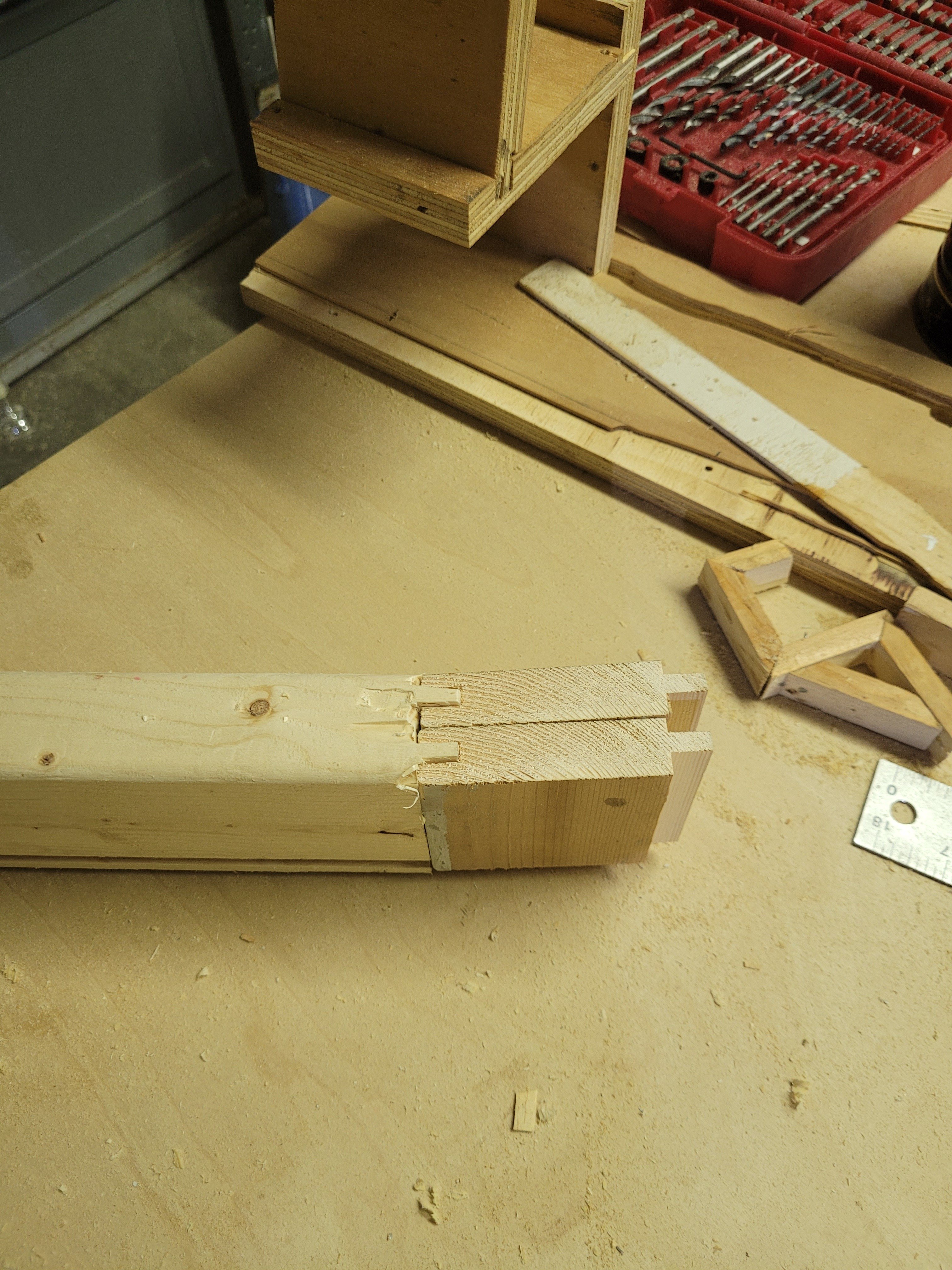this post was submitted on 28 Sep 2024
128 points (97.1% liked)
Woodworking
6114 readers
1 users here now
A handmade home for woodworkers and admirers of woodworkers. Our community icon is a planter box made by @Captain Aggravated, the winner of our summer '24 woodworking contest. Congratulations!
founded 1 year ago
MODERATORS
you are viewing a single comment's thread
view the rest of the comments
view the rest of the comments

Wasnt really a serious joint, just messing around. I'm sure if I slather it in wood glue it could work, but I know it doesn't make sense.
Curious, what were you going to say?
This joint would only be strong if the load was applied along long axis, but doesn't really offer any additional strength over just two flat surfaces in that direction.
In the direction perpendicular to the wide face, the joint is weak due to the direction of the grain in the short pieces. It would be a little stronger than a butt joint, but mostly due to the increased glue surface.
In the last direction, perpendicular to the narrow faces, the joint is nearly the same as a butt joint except it has more glue surface.
If you did want to join two boards with grain in these orientations (and assuming the two short pieces were longer in the direction perpendicular to the bench), then a mortise and tennon or half lap join would be recommended. You can use the router to cut both sides of the half lap, and it could cut the tennon. Without a router table with a good fence, I wouldn't recommend using it to cut a deep mortise.